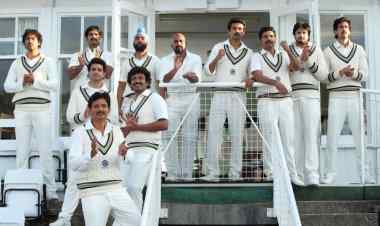Rukshana Tabassum’s Dammy : a sympathetic examination of the plight of a vulnerable man mocked and exploited by a fraternity that does not recognise the purity of his yearning

Two times national award-winning filmmaker, Rukshana Tabassum’s recent outing, Dammy, a twenty-seven-minute-long short film, is a sympathetic examination of the plight of a vulnerable man mocked and exploited by a fraternity that does not recognise the purity of his yearning. The narrative serves as a witness to the fact that innocent people belonging to the lower rung of our society are always at the edge of oppression.
Suman Basodia (Vikram Kochhar) is a tribal man who resides in a shack located within the lush fields of Bhiltola, a rural area in Madhya Pradesh. His wife died in an accident while she was pregnant. But fortunately, the child survived. As a single father, Suman has to take care of the infant, Thippu. But he soon realizes that despite his unwavering love and attention to his daughter he could never fill the gap of a mother. So carrying the baby in his cycle, he heads towards the district hospital, with a weighty resolve.
Rukshana stringently dictated the subjects of her previous short films, The Cake Story (2018) and Apples and Oranges (2019), with dollops of humour and a jovial tone. With Dammy, she stretches her innovative acuity and thrivingly unfurls her options for exploring grim content with an unsparing look at social inequality. She begins the film with Suman going through his routine tasks, with ambient sound layering the aural space that highlights his loneliness and isolation despite being amidst the company of natural surroundings. But once Suman reaches the town, Rukshana makes the humble character confront one difficulty after the other making the space an inhospitable swirl. Rukshana places the story in the larger context of what impartiality means for different sections of Indians and even criticises how people in better financial positions do not hesitate to hatch a swindling plan to cheat the poor. Along with her screenplay writer Jinoy Jose, she layers the character of Suman with such innocuousness that makes him a social misfit. For instance, when Suman, waiting at the hospital corridor, realises that he has run out of milk and Thippu is hungry. So he unwittingly asks a mother to feed his daughter. The film has an open ending, where Suman has lost an indispensable accessory in his daily life and wanders aimlessly in the streets of the uncaring town at dusk. By doing so Rukshana thoughtfully raises the question of whether our society will ever comfort itself in a way that is perfectly objective and just to the have-nots. However, just like in real life, the film raises tough issues rather than offering simple solutions.
Cinematographer Vandita Jain effortlessly glides her camera through the streets and the indoors of the hospital to create a claustrophobic evocation of a morally uncaring world with a characteristically grey tone. Mahendra Singh Lodhi edits the film with a tempo that helps him to create a vast social mosaic depicting the hardships of the oppressed. The sound design by Bigyna Dahal keeps a balance in the narrative by subtly using ambient sounds to effectively create a diverse soundscape of the elements in nature and the cacophony of the crowd and vehicular traffic. The lullaby sung by Priti Jha Tiwari functions like a balm over the miseries of the protagonist. Vikram Kochhar as the gullible tribesman brings alive the naivety of Suman with his convincing body language and subdued gestures. At the same time, the supporting cast does a commendable job keeping up the dramatic cadence of the film.
Numerous films have been made that have unflinchingly highlighted the injustice meted out to the underprivileged by those with authority and power, and Dammy is not an exception. But what makes this film worth investing our time in is the steady and captivating manner in which Rukshana empathetically allows us to participate in the plight of her primary character.
***
About the author: Dipankar Sarkar is an Indian film critic and an alumnus of FTII,Pune.
What's Your Reaction?

































































